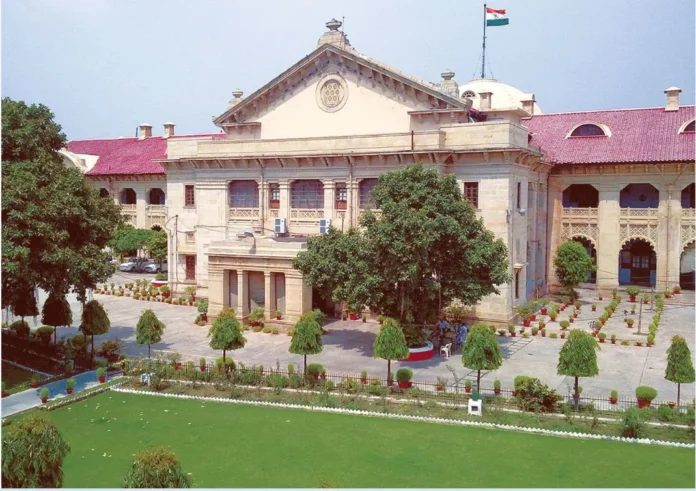The Allahabad High Court has dismissed the petition filed seeking exemption in road tax on purchasing electric vehicles from Jammu and running them in Uttar Pradesh.
The Division Bench of Chief Arun Bhansali and Justice Vikas Budhwar passed this order while hearing a petition filed by M/S Batra Henlay Cables.
The petition has been filed by the petitioner aggrieved by the exemption notification dated 02.03.2023 to the extent it imposes a condition for the purpose of getting exemption that the vehicle in question must have been purchased in the State of Uttar Pradesh.
It is, inter alia, indicated that by notification dated 02.03.2023 the State by issuing the notification under Section-3 of the UP Motor Vehicle Taxation Act, 1997 (the Act) has issued a notification whereby the road tax on purchase of electric vehicles and registered in the State of Uttar Pradesh from the date of notification of the Uttar Pradesh Electric Vehicle Manufacturing and Mobility Policy, 2022 dated 14.10.2022 has been exempted.
Submissions have been made by the counsel for the petitioner that the petitioner has purchased a vehicle from Jammu and got it registered in the State of Uttar Pradesh and was required to pay an amount of Rs 1,91,900 as road tax.
However, while under the exemption notification, the said amount of road tax is being refunded to those, who have purchased the vehicle within the State, the same has been refused to the petitioner as the vehicle has been purchased from Jammu.
Submissions have been made that the condition of having purchased the vehicle within the State of Uttar Pradesh is contrary to the Scheme of the Act, inasmuch as when the road tax is levied for operating the vehicle within the State, no distinction can be made on the basis that the vehicle in question has been purchased within the State or from outside and therefore, the condition imposed in the exemption notification to the extent of purchase of vehicle within the State of Uttar Pradesh deserves to be quashed and set aside.
The Government Counsel contested the submissions made. It is submitted that the petitioner has no right to seek exemption and in terms of Section-3 of the Act, the conditions for grant of exemption can be delineated by the State and qua the condition of purchase of vehicle, it cannot be said that the same is unreasonable.
Further submissions have been made that while purchasing the vehicle in the State, the State gets its share of GST, whereas, when the vehicle is purchased from outside the State, the State does not get any benefit and therefore, the condition imposed cannot be said to be contrary to the Act and/or to the Scheme as such.
The provisions of Section-3 of the Act reads as under:
“3. Power to exempt. (1) The State Government may, by rule or notified order, subject to such conditions and for such period, as may be specified, exempt, either wholly or partly, any motor vehicle or class of motor vehicles from- (a) the operation of this Act or any provision thereof, or (b) the payment of any tax under this Act. (2) Omitted The State Government may, in like manner, withdraw any exemption granted under sub-section (1) but such withdrawal shall not operate retrospectively.”
The Court noted that the State Government, subject to such conditions and for such period, as may be specified, may exempt either wholly or partly any motor vehicle or class of motor vehicles from the payment of any tax under the Act.
The Court noted that,
The Section does not restrict the power of the State to indicate the conditions for grant of exemption. The notification dated 02.03.2023, inter alia, provides for 100% exemption of tax on the vehicles purchased and registered in Uttar Pradesh.
The very fact that the aforesaid Section does not restrict the powers of the State in imposing condition, the plea raised seeking to question the condition imposed regarding purchase of vehicle cannot be countenanced. The submissions made that as the tax imposed is on plying of the vehicle, no condition on the basis of place of the purchase of the vehicle can be imposed, apparently also has no basis.
“There is substance in the submissions of the counsel for the respondents that on purchase of vehicle within the State, the State gets revenue through its share of GST and in case the vehicle is purchased from outside the State, even that part of the revenue is lost and therefore, instead of making it open-ended exemption, the State is well within its power to impose the condition of purchase of vehicle within the State, which condition cannot be said to be unreasonable,” the Court observed while dismissing the petition.


